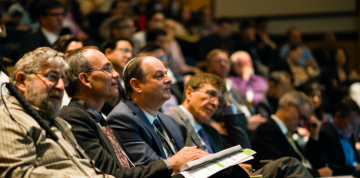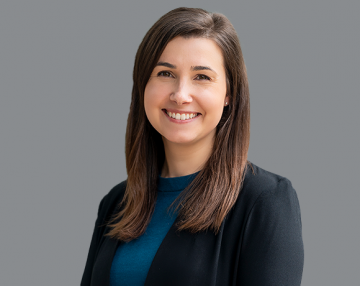Translational Medicine Rounds – 9 January 2023
Fueling Research by Saving Body Bits: BC Children’s Hospital BioBank
Speaker: Dr. Suzanne Vercauteren 
Slides: BCCHB ATM Rounds January 2023
Summary: Biobanks process and store biological specimens and associated clinical data for research purposes and have become a common resource in research institutes around the world.
Pediatric research and biobanking is unique in that participants do not consent for themselves but parents or legal guardians make decisions on behalf of their child. The BC Children’s Hospital BioBank was established in 2015 with the mission is to provide a comprehensive service for the collection, processing, storage, rapid access and retrieval of biospecimens and clinical information for research projects using a professional and compassionate approach to patient consenting.
Introduction
A biobank is a collection of de-identified human biological samples and associated information that scientists can access for their research. Quality biobanks are invaluable to understanding disease and finding solutions to improve healthcare outcomes for Canadians.
Biobank Resources
Biobank tools and information about registering and certifying biobanks can be found at:
-
- Canadian Tissue Repository Network: CTRNet.ca
- Biobank Resource Centre
Biobank Locators can be found at:
-
- Canadian biobank Locator: Biobank locator
- Registered Biobanks can be found using the Biobank Resource Centre’s Biobank Locator. The locator provides valuable information for each biobank such as its certification status, principal investigator, country, biospecimens collected, and objective. There are currently more than 300 Biobanks listed in the locator, including but not limited to:
-
- BC COVID-19 Biobank Network
- BC Children’s Hospital BioBank
- Tumour Tissue Repository
- OvCARE
- Centre for Brian Health Biobank
- International Spinal Cord Injury Biobank
- GU Biobank
The Biobank Resource Centre also provides a list of international online sources in locations such as Canada, USA, Europe, and more.
-
- Registered Biobanks can be found using the Biobank Resource Centre’s Biobank Locator. The locator provides valuable information for each biobank such as its certification status, principal investigator, country, biospecimens collected, and objective. There are currently more than 300 Biobanks listed in the locator, including but not limited to:
- European biobank locator:https://www.bbmri-eric.eu/services/sample-locator/
- USA biobank locator: https://specimens.cancer.gov/
- Canadian biobank Locator: Biobank locator
-
- International biobank locator : ISBER locator
Determining the best way to access specimens for your research
-
- Biospecimen Navigator Platform will help you locate and acquire biospecimens: http://biofind.ca/ (this site is undergoing further development)
Finding education about biobanks:
-
- CTRNet and International Society of Biological and Environmental Repositories (ISBER) course: https://www.isber.org/page/EssentialsBiobanking
- UBC EdX online course: Biospecimen research methods
Starting a new biobank
-
- Receive a free 1-hour consultation on biobanking or how to access biospecimens from the Biobank Resource Centre: https://biobanking.org/webs/contact_us
- Biobank protocol template. This template document helps the user to create a protocol describing all operational and planning aspects of their biobank
- UBC Office of Research Ethics
As of May 2021 New Analysis of Biospecimens Forms will be available for researchers through the UBC Office of Research Ethics website
Testimonial
“Using these biospecimens, we were able to interrogate and validate therapeutic targets, which is important as we strive to translate our work at the patient level.”
–Karla Williams
Canada Research Chair in Oncology | Michael Smith Foundation for Health Research Scholar |Assistant Professor, UBC Faculty of Pharmaceutical Sciences





